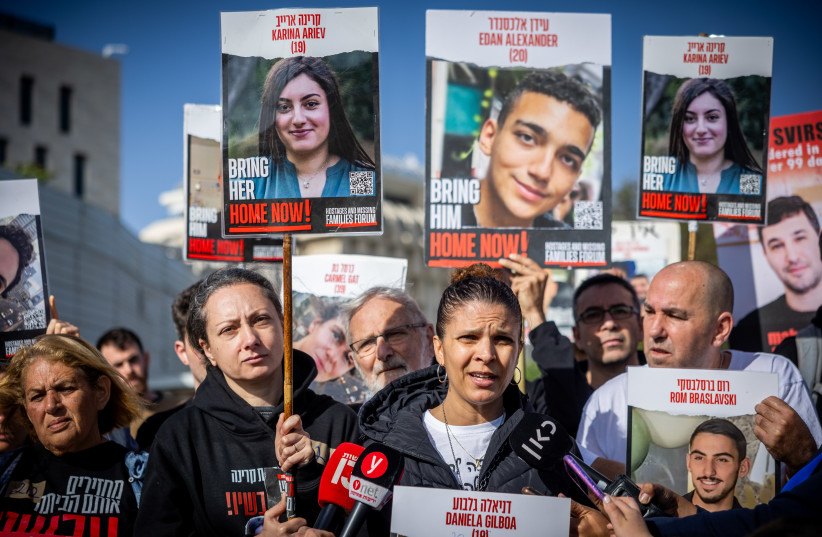Hamas, not Israel, torpedoed the hostage talks in Cairo, Prime Minister Benjamin Netanyahu’s office stressed, as Israel moved forward with its plan for a Rafah operation and CIA Director William Burns attempted to salvage a deal that would pause the war.
“The claim that Prime Minister Netanyahu and not Hamas is the one who sabotaged the hostage release deal is a complete lie and a deliberate deception of the public,” the PMO said Monday in a statement.
It spoke out after an Israeli source told The New York Times that the talks in Cairo fell apart because of Netanyahu’s very public pledges to enter Rafah in southern Gaza to destroy the remaining Hamas battalions there.
“The truth is completely the opposite, Hamas is the one that frustrates every deal by not moving a millimeter from its extreme demands that no government in Israel can accept and first of all,” the PMO stated.

Hamas has insisted that any deal for the remaining 132 hostages must include an agreement for a permanent ceasefire, whereas Israel has stood on the principled point that the war would only be paused.
Failure to complete the war, the PMO stated, would “once again allow Hamas to seize control of the Strip militarily” and to prepare to carry out another October 7-style attack, as it has promised to do.
Mediators from Egypt and Qatar had hoped to arrange for a three-phased deal that would include the release of 33 hostages over 40 days in exchange for a pause in the war.
Two additional phases involving the release of the remainder of the hostages, as well as the bodies of those who died or were killed, would be freed in two additional phases lasting another 80 or so says.
The US had hoped that the pause to the war would allow time to work out a permanent ceasefire that would remove Hamas from power in Gaza.
CIA Director William Burns is in the region to help bridge the differences between Israel and Hamas. He was in Cairo and Doha on Sunday and, according to the Hebrew language news site, is expected in Israel sometime this week.
The IDF, however, was in preparation for a military operation in Rafah, because evacuating Palestinians in eastern Rafah to a humanitarian area in humanitarian area in Al-Mawasi.
Hamas said that the move was a dangerous escalation.
Defense Minister Yoav Gallant told US Secretary of Defense Lloyd Austin on Monday night about the operation and said that Israel had no choice but to operate militarily in Rafah.
Israeli source says Hamas, Israel have shifted to 'blame game'
On Monday morning, the New York Times cited an anonymous Israeli source as saying that Hamas was now demanding additional guarantees that Israel would not resume fighting and launch an invasion of Rafah after any agreement. The cited official added that Hamas and Israel had shifted to playing a "blame game" and that the negotiations had stalled and were in "crisis."
In contrast to the Israeli source, two unnamed US officials told the New York Times that the talks weren't actually at an impasse and that the two sides were still reviewing the details of the most recent proposals.
The Israeli source added that Israel was waiting for a written response from Hamas before sending a delegation to Cairo, but had still not received such a response.
Senior Hamas leader Mousa Abu Marzouk told the New York Times that Hamas had wanted Israel present at the talks and was still demanding that any ceasefire be "permanent and fixed."
Jerusalem Post Staff contributed to this report.
